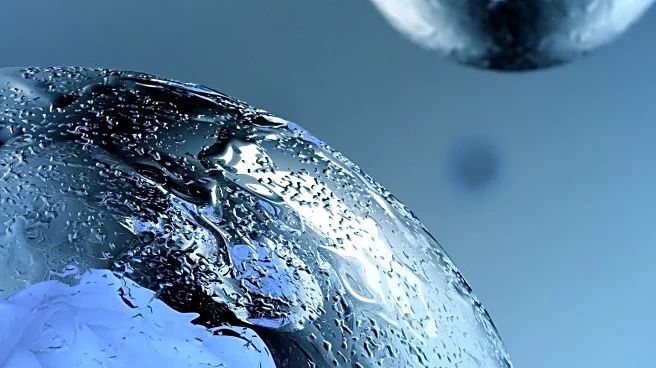What is the story about?
What's Happening?
A study conducted by researchers at the University of Illinois Urbana-Champaign, Duke University, and the Chan Zuckerberg Biohub Chicago has uncovered why the liver fails to regenerate in patients with alcohol-associated liver disease, even after they stop drinking. The study, published in Nature Communications, reveals that excessive alcohol consumption disrupts the liver's regenerative process by causing inflammation that affects RNA splicing during protein synthesis. This disruption traps liver cells in a transitional state, preventing them from fully regenerating. The research team found that a deficiency in the protein ESRP2, crucial for proper RNA splicing, is a key factor in this process. The study involved comparing healthy liver samples with those affected by alcohol-related hepatitis or cirrhosis, revealing that damaged cells begin but do not complete the regenerative process.
Why It's Important?
This discovery is significant as it provides a potential pathway for developing treatments for alcohol-associated liver disease, which is a leading cause of liver-related deaths globally. Understanding the molecular mechanisms that prevent liver regeneration could lead to new therapeutic strategies that target RNA splicing defects. This could potentially reduce the need for liver transplants, which are currently the only life-saving option for patients with severe liver failure. The findings also suggest that correcting RNA splicing defects could improve liver recovery, offering hope for millions affected by this condition.
What's Next?
The researchers plan to use these findings as a foundation for future clinical studies. They aim to explore the use of misspliced RNAs as diagnostic markers and develop treatments that can mitigate inflammation and correct splicing defects. Such advancements could significantly enhance recovery prospects for patients with alcohol-related liver damage. The study's insights into the role of ESRP2 and inflammation in liver regeneration may also inspire further research into other regenerative processes affected by alcohol consumption.
















